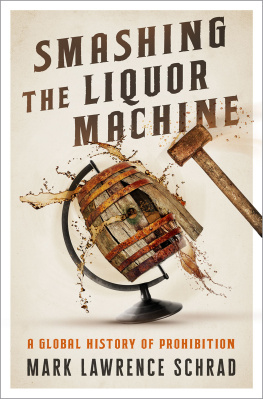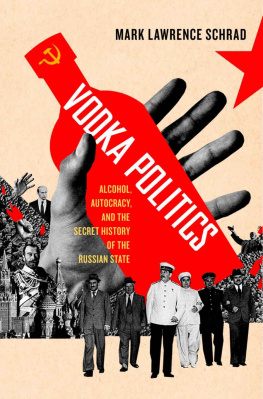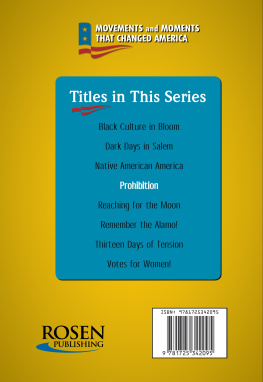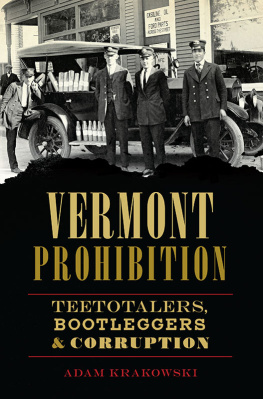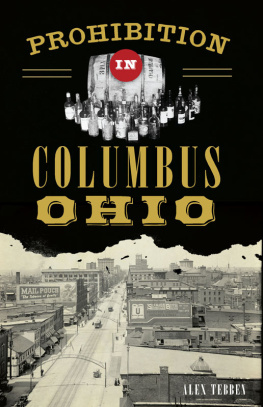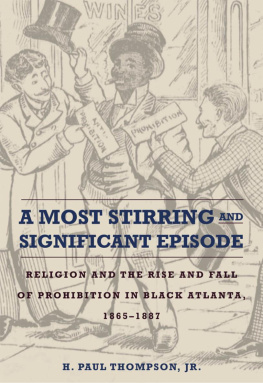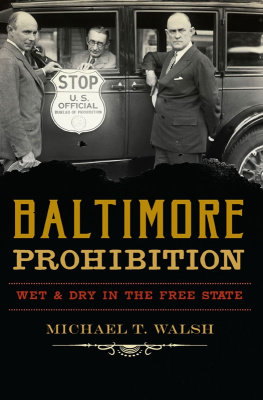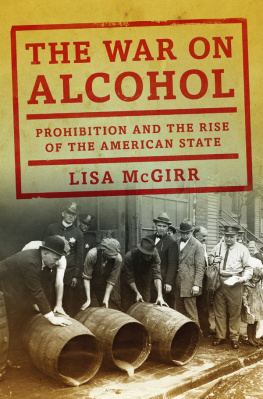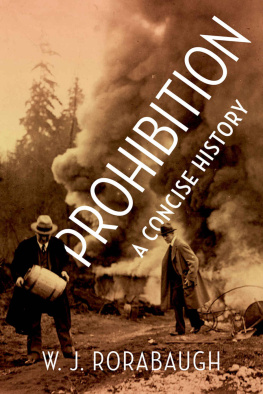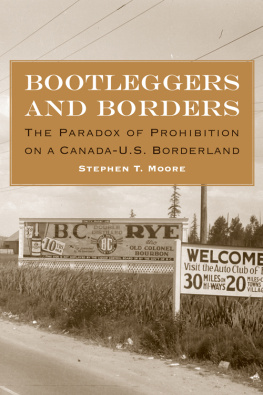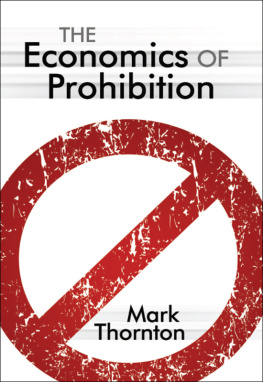Smashing the Liquor Machine

Oxford University Press is a department of the University of Oxford. It furthers the Universitys objective of excellence in research, scholarship, and education by publishing worldwide. Oxford is a registered trade mark of Oxford University Press in the UK and certain other countries.
Published in the United States of America by Oxford University Press
198 Madison Avenue, New York, NY 10016, United States of America.
Oxford University Press 2021
All rights reserved. No part of this publication may be reproduced, stored in a retrieval system, or transmitted, in any form or by any means, without the prior permission in writing of Oxford University Press, or as expressly permitted by law, by license, or under terms agreed with the appropriate reproduction rights organization. Inquiries concerning reproduction outside the scope of the above should be sent to the Rights Department, Oxford University Press, at the address above.
You must not circulate this work in any other form and you must impose this same condition on any acquirer.
CIP data is on file at the Library of Congress
ISBN 9780190841577
eISBN 9780190841591
DOI: 10.1093/oso/9780190841577.001.0001
For my son, Alexander.
I wish you the joy of curiosity,
the curse of tenacity,
and the satisfaction of
crafting your desires into reality.
Table of Contents
In this book, Russian names generally follow the British standard (BGN/PCGN) transliteration, with some alterations to accommodate the widely accepted English equivalents of familiar historical figures (for example, Leo Tolstoy and Leon Trotsky, instead of Lev Tolstoi and Lev Trotskii). These alterations do not apply to the bibliographic references in the notes, which maintain the standard transliteration for those who wish to consult the original sources.
Windhaven Assisted Living Center, Cedar Falls, Iowa: July 8, 2018
Prohibition? my grandma Betty Nyberg replied, with a knowing smile and a dismissive wave of her hand.
Oh, dear. Prohibitionthats when Peoria really started going downhill.
Grandma knew Id long been fascinated with prohibition. We were very close. She knew Id been researching this book on it for a decade already. Still, I never missed a chance to ask her to reminisce about prohibition. She lived it, after all. She was a teenager by the time prohibition was ultimately repealed. Id heard all her stories before, but that didnt diminish my joy of hearing them, or her joy of recounting them.
She was born Betty Jane Dixon on July 10, 1918. Her father and uncle built Peorias most successful fishing business: still running today on the east bank of the Illinois River. Grandma hated fish; the embarrassing stench clung to your hands, shoes, and clothes.
Still, the fish were free, dear, shed say. You just had to go out and get them.
During the Great Depression, the Dixons hired scores of destitute menmany laid off from the nearby Caterpillar tractor factoryto pilot the boats and pull the carp from the river. Those fish put her through college, and bankrolled the Dixons other moneymaking schemes: running a paddlewheel steamship line to St. Louis; a short-lived bus line overland to Quincy, Illinois; andmost notablybuilding their own plant for the rectification of whiskey. With plentiful grain, water, and coal, and easy access to transportation, Peoria was among the distilling capitals of the United States prior to prohibition. But unlike distilled whiskey that was aged in barrels to acquire its distinct taste, rectified whiskey was just industrial distillate with flavors and colors added. It was what Theodore Roosevelt would call artificial whiskey, which was cheaper and easier to make, and thus far more profitable than the genuine article. Apparently thats what my great-grandparents were selling, when they werent selling fish.
The men who ran the whiskey trucks were universally shifty and unscrupulous, Grandma remembered.
Its strange that the whiskey was what I remembered most about Grandma Betty. Every day at 5 p.m., shed mix her evening Manhattan: two parts bottom-shelf blended whiskey, one part sweet vermouth, stirred. Some times shed try to share it with me, but I always thought Manhattans tasted like gasoline.
In 2018, her entire extended family gathered over Fourth of July weekend to toast Manhattans to Bettys one hundredth birthday. But when it came time for our long drive back east, Grandma kept my wife and I rapt with prohibition and family stories, even as the last rays of a brilliant Iowa sunset passed through the blinds at her retirement-community apartment.
She bid us farewell with her trademark mischievous giggle, and the See you later, alligator! that was our send-off since I was a child.
After a while, crocodile! I smiled, closing the door behind us.
Grandma Betty passed away peacefully just a few hours later. We were the last to see her.
Something strange happened after Grandmas funeral, though. As we cleaned out her apartment, we found gallon after gallon of Grandmas whiskey and sweet vermouth. And after drinking one too many Manhattan tributes to her, I found myself actually enjoying that gasoline taste. In drinking habits at least, Ive become my grandma, which is not at all a bad thing.
Grandma Betty was my personal link to the long-ago world of the Prohibition Era: that fascinating time between World War I and the Great Depression, which we sometimes glamorize, sometimes disparage, and frequently struggle to understand objectively. But just as we cannot bracket off my grandmothers upbringing in that era and relegate it to some distant past, neither can we quarantine prohibition history to some discrete timeframe, to be studied in isolation from ongoing social, political, and economic struggles. Indeed, many of the same dynamics of economic and political domination, exploitation, and resistance that I write about in this book still make headlines today: the Sioux Tribe of Standing Rock asserting their communitys sovereignty against big-business backed by the coercive forces of the US government; the #MeToo movement truth-telling against an entrenched patriarchal system; and Black Lives Matter, reckoning with the deeply rooted political, social, and economic subordination of African American communities.
In each of these cases, the dynamics are crystal clear: historically marginalized groupssufferingtake it upon themselves to challenge the status quo of traditional power and privilege. In doing so, they force us into the discomfort of confronting the yawning chasm between who we are as a nation and who we imagine ourselves to be. On one side is soaring patriotic rhetoric about freedom and equality; on the other is a reality where women and minorities are neither free nor equal. On one side are allusions to the American promise of economic liberty, while on the other are those who suffer poverty and bear the real human costs of others liberty. Andinsofar as were talking about allusions to the United States as a Christian nationwe have the image of Christs love, forgiveness, and care for the marginalized and downtrodden, juxtaposed against the unscrupulous predations of those who wield political and economic power under the guise of being a good Christian.
Prohibitionism shared the same underlying ethos as all of these contemporary movementsnot just in the United States, but around the globe. Prohibitionism wasnt moralizing thou shalt nots, but a progressive shield for marginalized, suffering, and oppressed peoples to defend themselves from further exploitation. All great reforms go together, as Frederick Douglass reminded us: abolitionism, womens suffrage, and liberation from the liquor traffic through temperance and prohibition.

